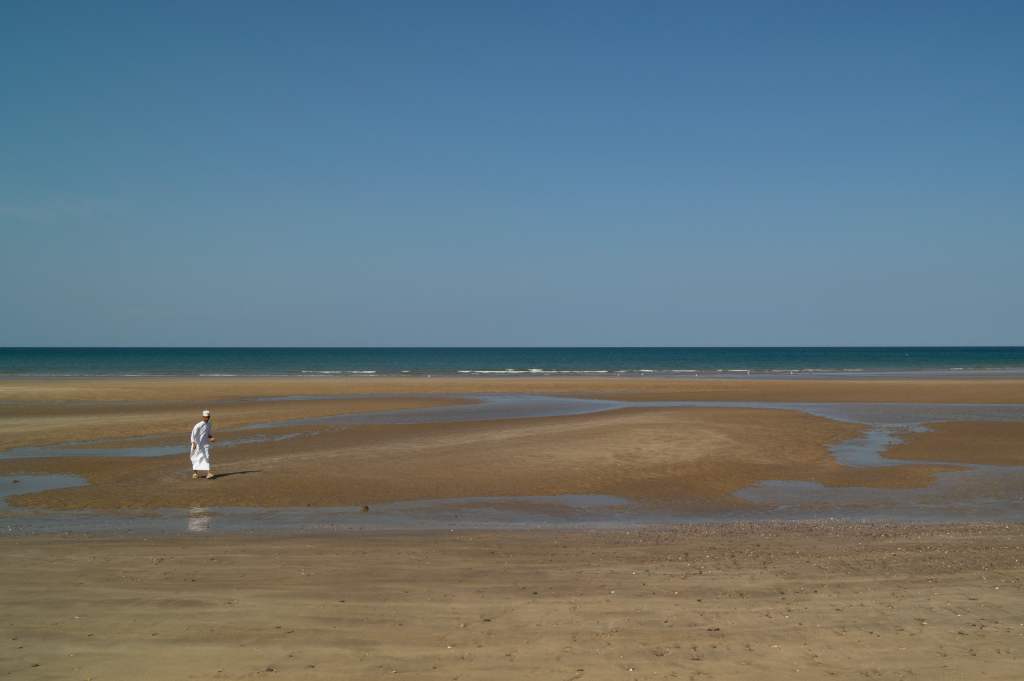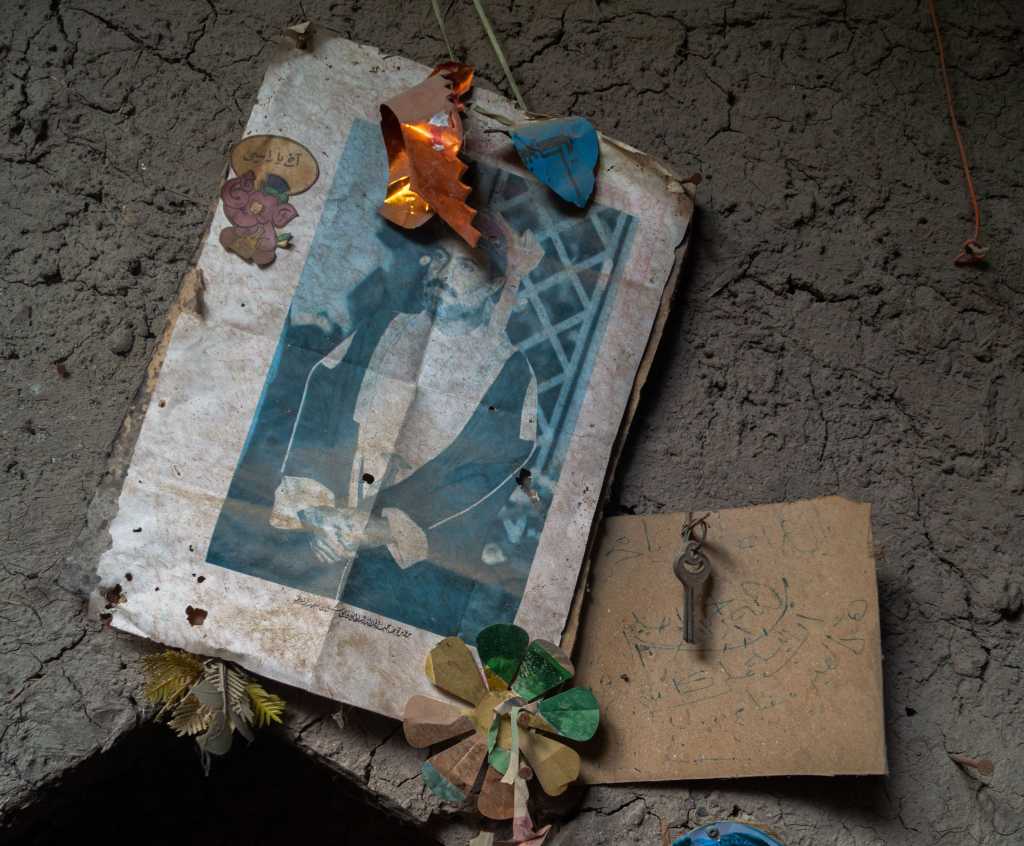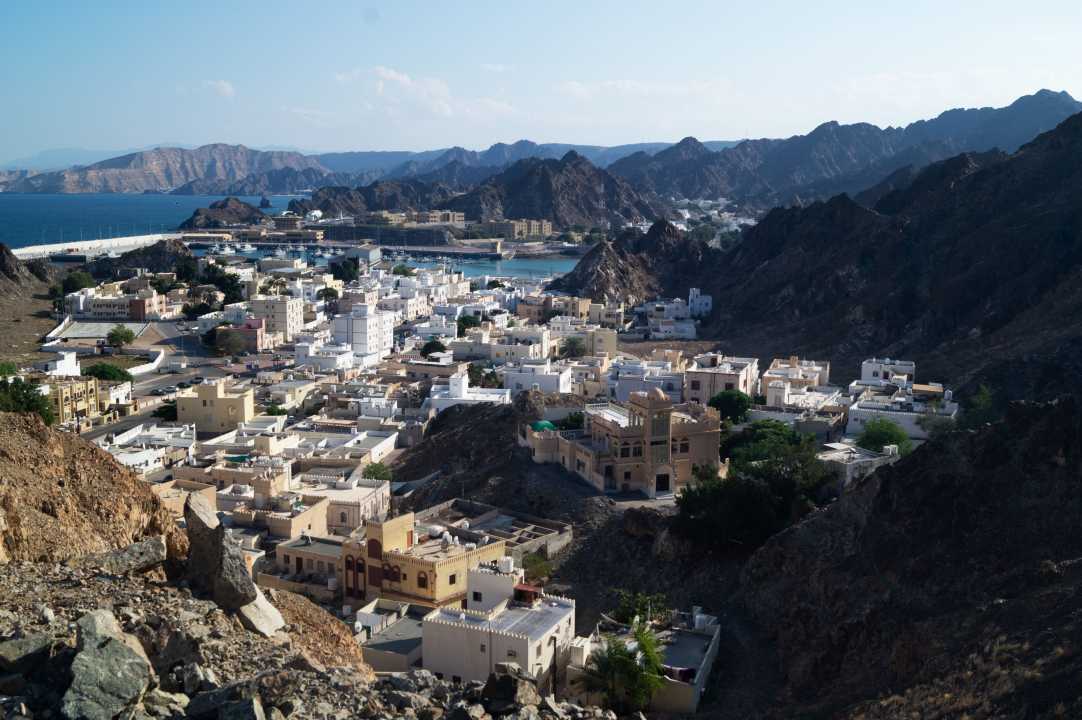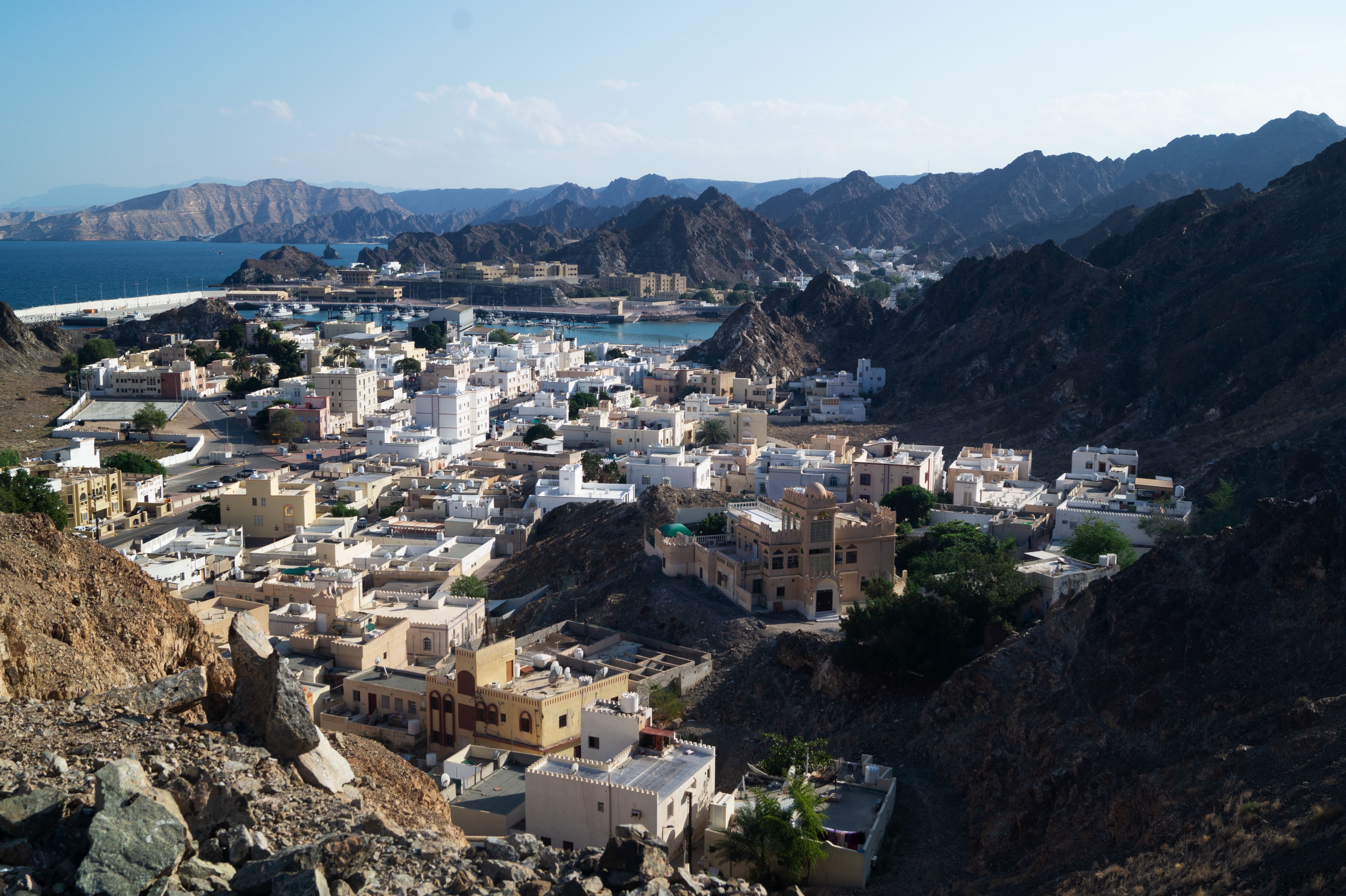Muscat looks different than just about every other Gulf capital. There are neither skyscrapers nor demonstrations of obvious opulence. But at first glance, Oman doesn’t seem so different than some older parts of Dubai or Abu Dhabi. There’s money; there’s men in traditional, flowing garments and women in burqas; there’s beautiful buildings funded by oil profits.
Yet Oman is a peculiar place straddling past and present. There are echoes of empire, a people yearning for Oman to reclaim its status as a major geopolitical player, and a government facing the difficult task of preparing for a post-oil future.
Omani became independent in 1951 after 60 years of soft British colonisation. For years, the crown effectively controlled Muscat – a major trading point at the intersection of Africa, the Middle East, and South Asia – by embedding senior advisers in the inner circle of the Sultan, descended from the Al bu Said family since 1744. Neither the British nor the Sultanate controlled Oman’s vast and impoverished interior, over which a 1920 UK-backed treaty had granted a hardline Imam autonomy.
By the mid-1950s, Muscat was the only part of Oman about which much of the world knew. But after years of Omani decline, even that city had come to exist only to serve the transport needs of the British empire. The city also housed a somewhat feckless Sultan, Said bin Taimur. Yet that same Sultan, a man who could not even control most of his own country, continued to somehow maintain an empire of his own.
In 1698, the Omani Sultan defeated Portugal to claim Zanzibar, now part of Tanzania.
Then, in 1783, the Sultanate was granted control of the port of Gwadar, prime geopolitical real estate in what is today Balochistan, Pakistan. At its 19th century peak, Oman controlled a staggering strip of territory, its slender sovereignty extending from the Arabian Peninsula and Persia all the way down the coast of East Africa to modern-day Mozambique.
The Omanis were most powerful at sea, where they competed for influence with the British and Portuguese empires. Ports throughout the Indian Ocean came under Omani control, with Muscat remaining the cosmopolitan center. People from Gwadar flocked there in search of commercial opportunities, while Omanis imported Zanzibaris and other Africans for use as slaves — as servants, concubines and pearl-divers. Through attraction and coercion, Oman became a unique crossroads of world.
But as empires do, Oman’s began to atrophy. In 1948, Sultan Said was short on cash and sold Gwadar to Pakistan for some £1.7 billion. The Sultanate then lost control of Zanzibar in 1964 when African revolutionaries demanded the ouster of the Arab aristocracy that had profited off their labour for years. The Omani empire was no more.
Empires, however, can never be fully forgotten. They are too big and too powerful to not imprint themselves onto the attitudes and cultures of both coloniser and colonised. Empire is a hard thing to undo.
These echoes of empire are everywhere in Oman, most obviously in the country’s people. Omanis who describe themselves as nothing more than ‘Omani’ are ethnically Arab, African, and South Asian. All wear traditional Omani dress, but one Arab Omani man in his early thirties explained to me that he could never marry a ‘Zanzibar person,’ and that they would never consider marrying him. The same, he explained, goes for the country’s South Asians.

This is not quite racism in the way westerners would understand it. The Arab Omanis don’t seem to think of their African and South Asian competitors as any way inferior. Yet there is a sense, when it comes to marriage and reproduction, that is it better to stick to one’s tribe. Coexistence is for the public sphere, not the home.
While the domain of love remains somewhat segregated, Omani culture is anything but. The country speaks nearly a dozen languages, including multiple strains of Arabic, Baluchi, Persian, Urdu, and Gujarati. The kuma, the rounded hat that all Omani men wear, is African in origin, having made its way up the continent’s coast from Zanzibar. The same goes for the African djembe drums omnipresent in Omani music. ‘Omani bread’ is essentially South Asian chapati.
Once you begin to notice these echoes of empire, you notice them everywhere. Mention the loss of Zanzibar and Omanis will offer something approaching mourning. It is not unusual to meet one of the tens of thousands of Arab Omanis who grew up in Zanzibar, only to find themselves forcibly removed in 1964.
To the Omanis, the empire is a challenge and benchmark of what they themselves should achieve today. In a way, Omanis conceive of themselves not so differently from the Japanese: as inheritors of a past grand empire that must be preserved in some way.
You can hear the real pride with which Omanis talk about their culture, particularly in contrast to the rest of the Arabian Gulf. Omanis make sure to point out that they refused to build gaudy towers like in Dubai or Doha, that they have maintained their traditional culture, and that, above all, they remain a fundamentally unique country.
This self-conception seems also to be part of the reason why Oman’s foreign policy has for decades won plaudits from the empire of old, the United Kingdom, and the great American power of today. Under Sultan Qaboos and now his successor Haitham bin Tariq, Oman has remarkably managed geopolitical tensions: Muscat has close ties with both Tehran and Washington, and has mediated between them on sensitive issues like Americans detained in Iran and nuclear negotiations. Muscat has increasingly positive relations with Beijing as well, and is now close to sending LNG to Germany, too.
In all these foreign policy machinations, there is a subtle reflection of the country’s past imperial exposure to the world. Omanis were a sea-faring people who engaged regularly with Africans, Europeans, Persians, and South Asians, and remain similarly outward-facing today. There is a sense, too, of ‘it takes one to know one’ in Oman’s relationships with modern-day superpowers – a knowledge of how and why power is to be wielded, and how to engage with such might. Oman knows how to engage empires because they used to be one. No wonder that when Qaboos died, both Hillary Clinton and Iranian President Hassan Rouhani expressed their condolences.

Yet while much of Oman’s imperial past serves the country well, the population’s self-conception is challenging government efforts to prepare for the future.
Top officials know that the world is shifting away from oil and that at some point, within this century perhaps, Oman will need to find another source of income. Efforts to encourage tourism have been successful, drawing mostly Europeans and Arabs, but long-running government attempts to boost the economy by having Omanis do many of the jobs migrant workers are currently doing – under a policy known as ‘Omanisation’ – have lagged.
Omanisation has worked better at the white-collar level, with the government finding it relatively easy to give tax breaks and other benefits to companies that hire locals. But because Omanis know themselves to be the inheritors of a great civilization, they believe themselves above the service work that migrants do. ‘If an Omani works in a restaurant, they will be laughed at by their friends,’ one young Omani man told me. ‘Those jobs are better for the Balochs and the Indians.’
There is no question, though, that if the world eventually shifts from oil, Oman will be more reliant on tourism and service, and that more Omanis will need to take on these jobs. But empires have a way of long outliving their reign, casting a shadow for decades if not centuries to come. It will be difficult, then, for any Omani Sultan to convince his people that they should – in their eyes – lower themselves from a great people to one servicing those from today’s richer powers.
Oman still has time. The global shift away from oil is moving slowly, and Sultan Haitham is ramping up many somewhat unpopular but necessary economic reforms. Empire’s legacy need not and cannot be wiped away in a day.
For now, the djembe beat will go on, the chapatis consumed, the kuma hats woven. The echoes of empire will keep reverberating as Oman sails again into uncertain winds.







Comments